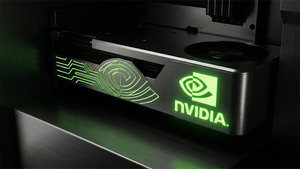Company Reports Updated Phase 1/2a Interim Study Results for 12 R/R Non-Hodgkin Lymphoma Patients who Received PBCAR0191 CAR T Cells Following Enhanced Lymphodepletion (eLD)
- Median Interval of 1 Day from Enrollment to Start of Lymphodepletion
- Single Dose of PBCAR0191 with eLD Yielded Overall Response Rate (ORR) of 75% and Complete Response Rate (CR) of 50% at Day ≥ 28 in Heavily Pretreated Patients with a Median and Mean of ~7 Prior Lines of Therapy
- 56% (5/9) of Responding Patients Remained Progression Free; 44% (4/9) of Responding Patients Showed Ongoing Responses > 4 Months; Assessment for Durability of Response is Ongoing
Company Showcases Preclinical Data Demonstrating that PBCAR19B Evaded Rejection by T-Cells and Natural Killer Cells
- PBCAR19B Stealth Cell Phase 1 Trial Open for Enrollment
Company to Host Webcast Today at 8:00 a.m. ET to Discuss Updated Study Results
Precision BioSciences Inc. (Nasdaq: DTIL), a clinical stage biotechnology company developing allogeneic CAR T and in vivo gene correction therapies with its ARCUS® genome editing platform, today announced encouraging progress on two strategies designed to optimize the durability of allogeneic CAR T therapy in patients with relapsed/refractory (R/R) non-Hodgkin lymphoma (NHL). The Company reported updated interim results from its Phase 1/2a study of PBCAR0191, the Company’s investigational, off-the-shelf, allogeneic CAR T cell therapy targeting CD19. As of May 21, 2021, 12 patients with R/R NHL were enrolled and evaluated for response to PBCAR0191 with enhanced lymphodepletion (eLD). The Company also reported preclinical data demonstrating the potential mechanism by which its investigational immune evading stealth cell, PBCAR19B, may avoid rejection by T cells and natural killer (NK) cells.
“These interim results in heavily pretreated R/R NHL patients illustrate the potential for PBCAR0191 to recognize and target CD19 positive cancer cells and suggest that enhanced lymphodepletion may be a strategy to help suppress host immune rejection. We’re encouraged by the high initial response rates and look forward to monitoring the responses for evidence of long-term durability,” said Alan List, MD, Chief Medical Officer of Precision BioSciences. “In addition, our PBCAR19B Phase 1 study is open for enrollment, and we believe this candidate has the potential to build on the encouraging clinical responses we’ve seen with PBCAR0191 to date and reduce the need for prolonged immunosuppression.”
As of May 21, 2021, 18 subjects in the Phase 1/2a study of PBCAR0191 with R/R NHL completed Day 28 evaluation and received either eLD1 (n=12) or standard lymphodepletion2 (sLD; n=6) with Dose Level 33 of PBCAR0191.
Efficacy
- Use of eLD mitigated PBCAR0191 rejection and markedly increased peak cell expansion (~72x) and area under the curve (AUC) (~59x), each as compared to sLD.
- A single dose of PBCAR0191 cells following eLD yielded clinical responses in the majority of patients, with overall response rates (ORR) and complete response (CR) rates of 75% and 50%, respectively at Day ≥ 28.
- Five of nine responding patients (56%) who received PBCAR0191 cells following eLD remained progression-free, including 4/9 evaluable subjects with responses lasting > 4 months. Assessment of duration of response is on-going.
- Median interval from confirmation of eligibility to start of LD was 1 day, reinforcing the potential feasibility for rapid delivery of off-the-shelf, allogeneic, cellular therapy for high-risk patients.
Day ≥ 28 Evaluation |
All eLD Subjects
|
CD19-CAR T Naïve
|
Prior Auto CAR
|
Overall Response Rate (ORR) n (%) |
9 (75%) |
6 (75%) |
3 (75%) |
Complete Response (CR) n (%) |
6 (50%) |
4 (50%) |
2 (50%) |
* Three of four responding patients had prior auto-SCT and auto CD19 CAR treatment.
Safety and Tolerability
As of May 21, 2021, PBCAR0191 with eLD continued to show acceptable tolerability without evidence of graft versus host disease (GvHD) and with a similar frequency of immune effector cell-associated neurotoxicity syndrome (ICANS) and cytokine release syndrome (CRS) compared to patients who received sLD. Infections occurred more frequently when PBCAR0191 was dosed following eLD.
Adverse Event Max Grade |
sLD
|
eLD
|
|
CRS
|
Grade 1 or Grade 2 |
3 (50%) |
7 (58%) |
Grade 3 or higher |
0 |
0 |
|
ICANS
|
Grade 1 or Grade 2 |
2 (33%) |
3 (25%) |
Grade 3 or higher |
0 |
1 (8%) |
|
GvHD
|
|
0 |
0 |
Neutropenia |
Grade 3 or higher |
0 |
2 (17%) |
Grade 3+ at Day 28 |
0 |
2 (17%) |
|
Infection |
Grade 1 or Grade 2 |
0 |
1 (8%) |
Grade 3 or higher |
0 |
3 (25%) |
|
Three treatment emergent deaths without disease progression occurred, including two cases of infection and one case of cardiac arrest after a choking incident. Two of these patients were in ongoing complete responses at time of death. Only one death, as previously reported on December 4, 2020 was assessed by the investigator as possibly related to study treatment.
Demographics for Enrolled R/R NHL Patients (PBCAR0191 with eLD)
- Over 80% of subjects had advanced and aggressive lymphomas.
- 75% had stage III/IV disease.
- Subjects had received a median of seven lines of therapy prior to study enrollment.
- 33% of subjects had prior CD19-directed CAR therapy.
PBCAR19B Immune Evading Stealth Cell
PBCAR19B is designed to extend persistence of allogeneic CAR T cells by evading rejection by the immune system of the patient. In preclinical studies, the anti-CD19 PBCAR19B stealth cell exhibited substantial resistance to rejection mediated by both allo-reactive T cell and NK cells, suggesting the potential utility of this approach.
In January 2021, Precision announced that the U.S. Food and Drug Administration accepted its investigational new drug application to evaluate the safety and clinical activity of PBCAR19B in patients with R/R NHL. Initial clinical trial sites have been selected for the Phase 1 study that is now open for enrollment. PBCAR19B will be evaluated at increasing flat dose levels beginning at 2.7 x 108 cells using sLD with the ability to dose up to 8.1 x 108 cells. Of note, the first dose level is approximately equivalent to Dose Level 3 in the PBCAR0191 trial.
Company-Hosted Conference Call and Web Cast Information
Precision will host a conference call and webcast today, Friday, June 4, 2021 at 8:00 a.m. ET to discuss the most recent interim clinical data for PBCAR0191 and preclinical data for PBCAR19B. The dial-in conference call numbers for domestic and international callers are (866) 996-7202 and (270) 215-9609, respectively. The conference ID number for the call is 5647916. Participants may access the live webcast and the accompanying presentation materials on Precision’s website www.precisionbiosciences.com in the Investors and Media section under Events and Presentations. An archived replay of the webcast will be available on Precision’s website.
About PBCAR0191 and Study Design (Clinical Trials Study Identifier: NCT03666000)
PBCAR0191 is an investigational allogeneic chimeric antigen receptor T cell therapy (CAR T) in a Phase 1/2a trial for the treatment of patients with R/R NHL and R/R B-ALL. PBCAR0191 was designed using Precision BioSciences novel and proprietary ARCUS® genome editing platform. It has been granted Fast Track Designation by the FDA for B-ALL. Precision also holds Orphan Drug Designation from the FDA for this program in mantle cell lymphoma, an aggressive subtype of NHL.
About PBCAR19B (Clinical Trials Study Identifier: NCT04649112)
PBCAR19B is a next-generation, stealth cell candidate for patients with CD19-positive malignancies such as R/R NHL. PBCAR19B is designed to improve the persistence of allogeneic CAR T cells following infusion by reducing rejection by T cells and NK cells. In addition to the CAR gene, the PBCAR19B stealth cell vector carries a short hairpin RNA that suppresses expression of beta-2 microglobulin, a component of Major Histocompatibility Complex (MHC) Class I molecules found on the cell surface. Reducing or knocking-down Class I MHC expression on allogeneic CAR T cells has been shown to reduce CAR T cell killing by cytotoxic allo-reactive T cells. Additionally, in an effort to attenuate NK cell-mediated elimination due to MHC class I knockdown, the PBCAR19B vector also carries an HLA-E gene designed to inactivate NK cells.
About Precision BioSciences, Inc.
Precision BioSciences, Inc. is a clinical stage biotechnology company dedicated to improving life (DTIL) with its wholly proprietary ARCUS® genome editing platform. ARCUS is a highly specific and versatile genome editing platform that was designed with therapeutic safety, delivery, and control in mind. Using ARCUS, the Company’s pipeline consists of multiple “off-the-shelf” CAR T immunotherapy clinical candidates and several in vivo gene correction therapy candidates to cure genetic and infectious diseases where no adequate treatments exist. For more information about Precision BioSciences, please visit www.precisionbiosciences.com.
Forward Looking Statements
This press release contains forward-looking statements within the meaning of the Private Securities Litigation Reform Act of 1995. All statements contained in this press release that do not relate to matters of historical fact should be considered forward-looking statements, including, without limitation, statements regarding our clinical development pipeline and the clinical benefit of our product candidates. In some cases, you can identify forward-looking statements by terms such as “aim,” “anticipate,” “believe,” “could,” “eligible,” “expect,” “expected,” “should,” “plan,” “intend,” “estimate,” “target,” “mission,” “goal,” “may,” “will,” “would,” “should,” “could,” “target,” “potential,” “potentially,” “promising,” “project,” “predict,” “contemplate,” “potential,” or the negative thereof and similar words and expressions.
Forward-looking statements are based on management’s current expectations, beliefs and assumptions and on information currently available to us. Such statements are subject to a number of known and unknown risks, uncertainties and assumptions, and actual results may differ materially from those expressed or implied in the forward-looking statements due to various important factors, including, but not limited to: our ability to become profitable; our ability to procure sufficient funding and requirements under our current debt instruments and effects of restrictions thereunder; risks associated with raising additional capital; our operating expenses and our ability to predict what those expenses will be; our limited operating history; the success of our programs and product candidates in which we expend our resources; our limited ability or inability to assess the safety and efficacy of our product candidates; our dependence on our ARCUS technology; the initiation, cost, timing, progress, achievement of milestones and results of research and development activities, preclinical or greenhouse studies and clinical or field trials; public perception about genome editing technology and its applications; competition in the genome editing, biopharmaceutical, biotechnology and agricultural biotechnology fields; our or our collaborators’ ability to identify, develop and commercialize product candidates; pending and potential liability lawsuits and penalties against us or our collaborators related to our technology and our product candidates; the U.S. and foreign regulatory landscape applicable to our and our collaborators’ development of product candidates; our or our collaborators’ ability to obtain and maintain regulatory approval of our product candidates, and any related restrictions, limitations and/or warnings in the label of an approved product candidate; our or our collaborators’ ability to advance product candidates into, and successfully design, implement and complete, clinical or field trials; potential manufacturing problems associated with the development or commercialization of any of our product candidates; our ability to obtain an adequate supply of T cells from qualified donors; our ability to achieve our anticipated operating efficiencies at our manufacturing facility; delays or difficulties in our and our collaborators’ ability to enroll patients; changes in interim “top-line” and initial data that we announce or publish; if our product candidates do not work as intended or cause undesirable side effects; risks associated with applicable healthcare, data protection, privacy and security regulations and our compliance therewith; the rate and degree of market acceptance of any of our product candidates; the success of our existing collaboration agreements, and our ability to enter into new collaboration arrangements; our current and future relationships with and reliance on third parties including suppliers and manufacturers; our ability to obtain and maintain intellectual property protection for our technology and any of our product candidates; potential litigation relating to infringement or misappropriation of intellectual property rights; our ability to effectively manage the growth of our operations; our ability to attract, retain, and motivate key executives and personnel; market and economic conditions; effects of system failures and security breaches; effects of natural and manmade disasters, public health emergencies and other natural catastrophic events effects of the outbreak of COVID-19, or any pandemic, epidemic or outbreak of an infectious disease; insurance expenses and exposure to uninsured liabilities; effects of tax rules; risks related to ownership of our common stock and other important factors discussed under the caption “Risk Factors” in our Quarterly Report on Form 10-Q for the quarterly period ended March 31, 2021, as any such risk factors may be updated from time to time in our other filings with the SEC. These filings are accessible on the SEC’s website at www.sec.gov and the Investors & Media page of our website at investor.precisionbiosciences.com.
All forward-looking statements speak only as of the date of this press release and, except as required by applicable law, we have no obligation to update or revise any forward-looking statements contained herein, whether as a result of any new information, future events, changed circumstances or otherwise.
1 Fludarabine (30 mg/m2/day for 4 days) and cyclophosphamide (1000 mg/m2/day for 3 days)
2 Fludarabine (30 mg/m2/day for 3 days) plus cyclophosphamide (500 mg/m2/day for 3 days)
3 Dose Level 3 of 3 x 106 cells/kg
View source version on businesswire.com: https://www.businesswire.com/news/home/20210604005124/en/
Contacts
Investor Contact:
Alex Kelly
Chief Financial Officer
Alex.Kelly@precisionbiosciences.com
Media Contact:
Maurissa Messier
Senior Director, Corporate Communications
Maurissa.Messier@precisionbiosciences.com






